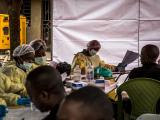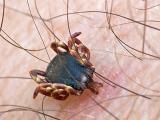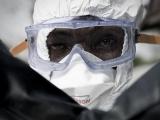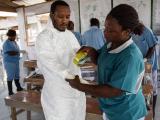Apr 11, 2005 (CIDRAP News) Intense efforts to improve local people's understanding of the Marburg hemorrhagic fever outbreak in Angola have made some headway, though the epidemic has grown to 214 cases with 194 deaths, the World Health Organization (WHO) said today.
The agency had suspended some surveillance efforts in Uige province in northern Angola Apr 8 after local people, apparently fearing that WHO surveillance workers were spreading the disease, had stoned workers' vehicles.
The surveillance teams resumed their work Apr 9 after "intensive campaigns to improve public understanding of the disease," the WHO said today. The provincial governor and local health officials have made personal visits to affected communities, and religious leaders have been helping as well, the statement said.
"Some improvements are already apparent," the WHO said. "More alerts to suspected cases and deaths are being reported directly by residents. Some 360 contacts are being followed up by the teams in Uige, but more improvements are needed to detect cases earlier, ensure their isolation and supportive care, and find and manage contacts."
The agency said the Ebola-like disease had claimed 194 lives out of 214 people infected as of Apr 9, with almost 90% of the cases occurring in Uige province. An Apr 10 report by Agence France-Presse put the case count at 218, including 193 deaths. The previous WHO update, on Apr 8, had reported 205 cases with 180 deaths.
Workers with Medicins sans Frontieres (MSF, or Doctors Without Borders) in the past 2 days have called for the closing of Uige's main hospital to non-Marburg patients. MSF has established an isolation ward in the hospital. Monica Castellarnau, MSF emergency coordinator in Uige, called for the closure to keep the hospital from becoming a source of infection, according to a Reuters report.
"We have strongly recommended that the hospital be closed temporarily and this is because the risk of infection at the hospital is unacceptably high," she was quoted as saying. The report added that health workers say basic hygiene rules are still not fully observed in Angolan hospitals.
Referring to the Uige hospital, today's WHO statement said, "Concern arises from the risk that persons infected with the virus might be admitted for another suspected illness and undergo testing or treatment procedures without adequate precautions."
There is no vaccine or cure for Marburg fever, which spreads through contact with bodily fluids. Health workers battling the disease wear protective "astronaut suits" that cover them from head to toe. A New York Times report said the suits include masks, goggles, head coverings, gowns, aprons, boots, and gloves.
Workers are encouraged to work in pairs and to watch each other to make sure they follow the infection control rules, the Times story said. It said the equipment is hot and uncomfortable and must be removed carefully to avoid contact with any contamination on the outside.
The protective gear worn by health workers has made some local people suspicious and reluctant to let workers take infected family members away for treatment in isolation, a Reuters story said.
A Times report said medical workers, police, and government officials who were trying to solicit cooperation in one neighborhood on Apr 9 were confronted by angry residents. Officials then ruled out surveillance in that neighborhood because it was considered too dangerous.
Despite the problems, the leader of the WHO efforts in Uige said health workers were making progress, according to a Times story today. "If we compare with previous weeks, when we had 10 to 15 cases a day, now we have 4 to 5 cases a day," Dr. Nestor Ndayimirije was quoted as saying. "I am certain we will control this epidemic if we work more with the communities."
See also:
Apr 11 WHO statement
http://www.who.int/csr/don/2005_04_11/en/
















